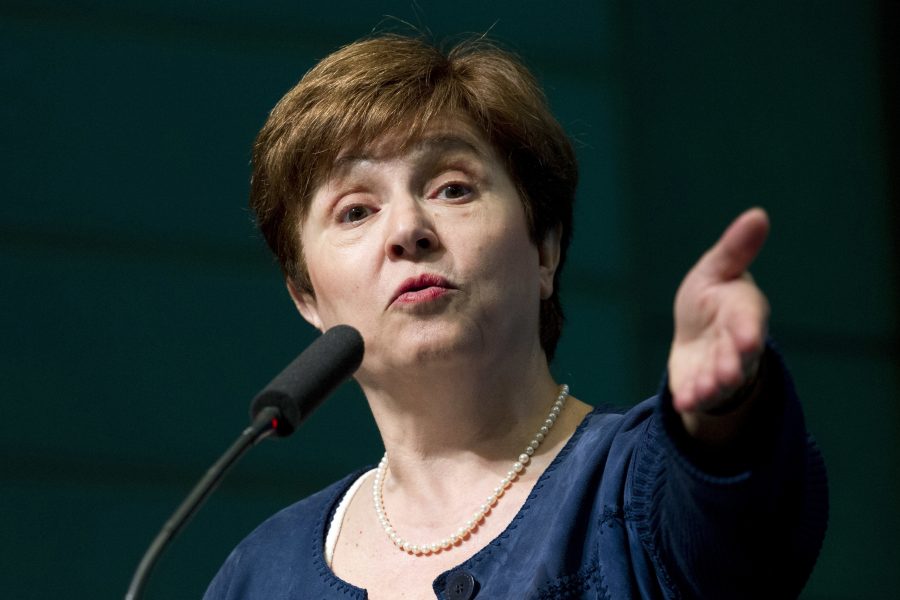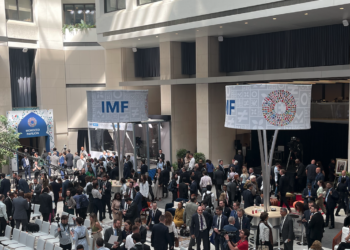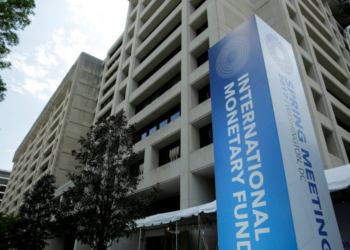The International Monetary Fund (IMF) mission to Nigeria has advised that the country needs to embrace the broad market and exchange rate reforms to address recurrent Balance of Payment (BOP) pressures and raise the medium-term growth path.
The IMF mission stated this on Friday in a statement issued by Ms Jesmin Rahman, in Washington D.C at the conclusion of the virtual mission, which had been conducted from October 30 to November 17, in preparation of the 2020 Article IV Consultation with Nigeria.
Ms. Rahman disclosed that low crude oil prices this year, due to the covid-19 pandemic, had negatively affected Balance Of Payments (BOP) pressures, citing the lockdown measures which caused economic hardships in Nigeria.
She added that the IMF projected that Nigeria’s economy would shrink by 3.4% in 2020.
“The recovery is projected to start in 2021, with subdued growth of 1.2 per cent and output recovering to its pre-pandemic level only in 2022,” she said.
“In spite of an expected easing of food prices, inflation is projected to remain in double-digits and above the Central Bank of Nigeria’s (CBN) target range and absent monetary policy reforms.”
She urged that the FG needed to do more in the area of monetary reforms to address BOP issues and improve short term growth.
“However, more needs to be done. Major policy adjustments embracing broad market and exchange rate reforms are needed to address recurrent BOP pressures and raise the medium-term growth path.
“A durable solution to Nigeria’s recurrent BOP problems requires recalibrating exchange rate policies to reduce it risks, instill market confidence and facilitate private sector planning.
“The adjustments in the official exchange rate made earlier this year are steps in the right direction and the mission recommended a multi-step transition to a more unified exchange rate regime, with a market-based, flexible exchange rate,” Rahman said.
She further said that significant revenue mobilisation, through tax policy and administration improvements, was required to create space for higher social spending and reduce fiscal risks and debt vulnerabilities.
She added that revenue mobilization through improved tax and administrative governance would be required to improve the Nigerian government’s revenues and reduce fiscal risks
“The mission also welcomed fiscal transparency measures introduced to facilitate tracking and reporting of budget emergency funding,” she said.
“The mission welcomed the recent submission of the Petroleum Industry Bill (PIB) to the Parliament.
“The Fiscal Framework chapter of the bill appropriately rebalances the government take in onshore and offshore production, with the aim of providing a fair share to the government while remaining attractive to investors,” she said.
What you should know
- Nairametrics reported in June that the International Monetary Fund (IMF) had announced that the Nigerian economy would witness a deeper contraction of 5.4% and not the 3.4% it projected in April 2020. But the global lender expected Nigeria’s economy to rebound by 2.6% in 2021.
- The World Bank also stated this week that the $1.5 billion loan to Nigeria was still in the works, and called for more monetary reforms going forward.
- “That is why our shareholders and our management are still saying we recognise how much Nigeria has done, but for this $1.5 billion to really be a part of the larger effort to put Nigeria on a sound macro-fiscal footing going forward, there needs to be a little bit more” Shubham Chaudhuri, World Bank Country Director for Nigeria, said.




















